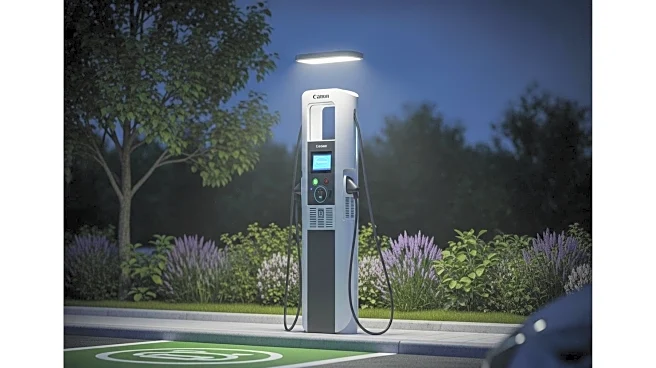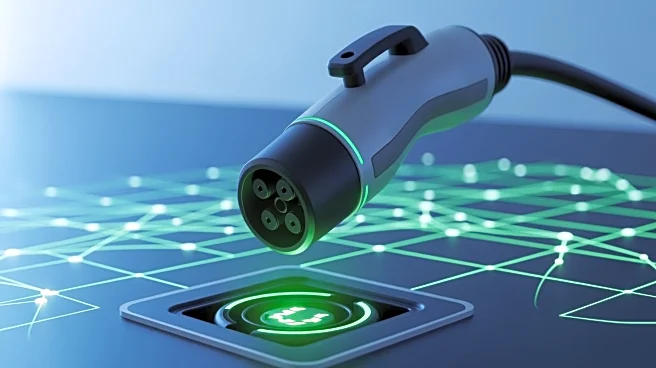What is the story about?
What's Happening?
The federal electric vehicle (EV) tax credit, designed to promote clean energy adoption, is scheduled to expire on September 30, 2025. This change is part of the One Big Beautiful Bill Act, signed into law on July 4, 2025. The tax credit, which offers $7,500 for new EVs and $4,000 for used EVs, was initially extended through 2032 by the Inflation Reduction Act. However, the new legislation accelerates its termination. The credits apply to qualifying plug-in electric and fuel cell vehicles, with eligibility criteria including North American assembly and MSRP caps of $80,000 for SUVs and $55,000 for sedans. The early phase-out is expected to prompt a surge in EV purchases as consumers rush to secure savings before the deadline.
Why It's Important?
The expiration of the federal EV tax credit could significantly impact the electric vehicle market in the U.S., particularly in Massachusetts. The loss of this financial incentive may increase the upfront costs for consumers, potentially slowing the adoption of EVs. A Harvard study projects a 6% reduction in EV market penetration by 2030 due to the credit's end, which could save the government $169 billion over a decade. However, this could also hinder progress towards clean energy goals and affect the automotive industry, which has been increasingly investing in electric vehicle technology.
What's Next?
Consumers interested in purchasing EVs must act quickly to benefit from the tax credit, ensuring vehicles are purchased and delivered by September 30, 2025. While state-level incentives may continue, the loss of federal support could lead to higher costs and slower adoption rates. Stakeholders, including automotive manufacturers and environmental groups, may advocate for alternative incentives or policies to support EV adoption.















